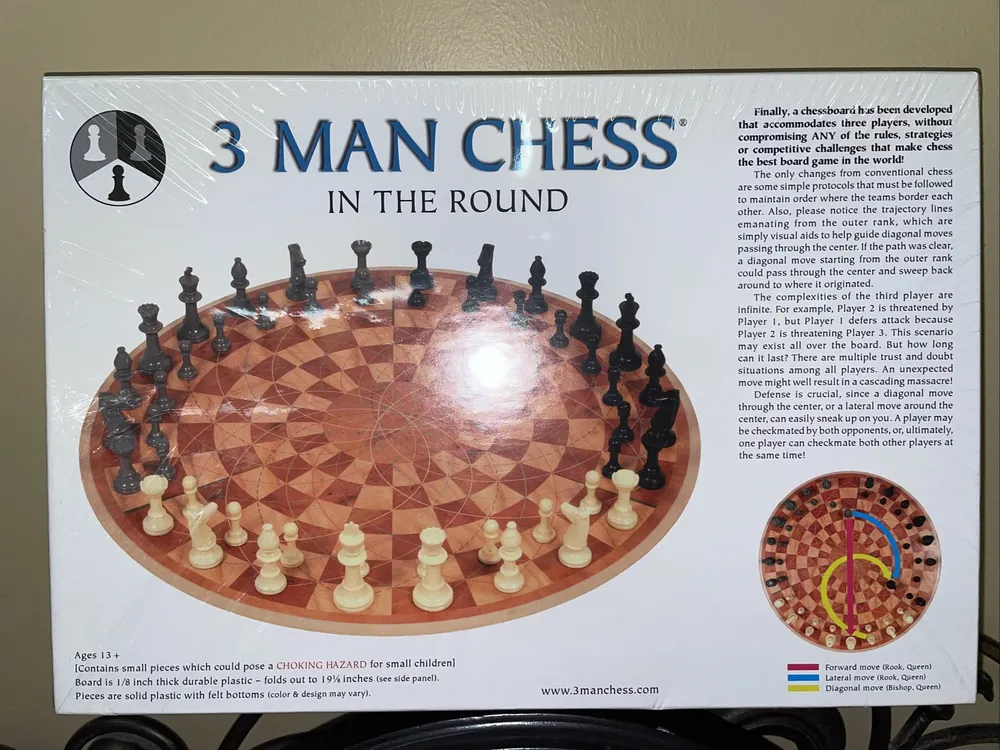Three-man Chess (1984)
Three-man chess
Three-man chess is a chess variant for three players invented by George R. Dekle Sr. in 1984. The game is played on a hexagonal board comprising 96 quadrilateral cells. Each player controls a standard army of chess pieces. The game was included in World Game Review No. 10 edited by Michael Keller.
Why is Three-man chess Popular?
Three-man chess is a popular variant of chess that allows three players to play on a single board. It is significant because it adds a new level of complexity to the game, requiring players to think strategically about how to attack and defend against two opponents at once.
Game Components of Three-man Chess
How To Setup Three-man Chess
The game starts with each player’s queen placed to the left of their king on the hexagonal board. The setup is similar to traditional chess, with the rooks on the outermost positions, followed by the knights, bishops, king, and queen. The pawns are placed in front of the other pieces, forming a concave line towards the center of the board. The game begins with the player controlling the white pieces, followed by the red pieces, and then the black pieces, moving clockwise.
Gameplay Mechanics and Game Objective
Player Experience
Three-man Chess introduces a new layer of complexity and strategy compared to traditional chess. Players must balance offensive and defensive maneuvers against two opponents simultaneously, requiring constant vigilance and adaptability. The dynamic nature of the game encourages creative tactics and alliances, though forming alliances can be risky due to the potential for betrayal.
Pros
Cons
Personal Thoughts on Three-man Chess
Three-man Chess is ideal for experienced chess players looking to add a new layer of complexity and strategy to their game. It requires a high level of strategic thinking and adaptability, making it a great challenge for those who enjoy intricate gameplay. However, it may not be the best introduction for new chess players due to its unique rules and multi-player dynamics. For those who enjoy the thrill of outmaneuvering multiple opponents and the constant evolution of strategies, Three-man Chess is an exhilarating and rewarding experience.
We are supported by our audience. When you purchase through links on our site, we may earn an affiliate commission, at no extra cost for you. Learn more.

